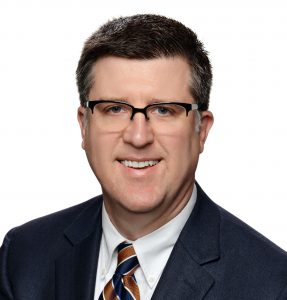By David F. Watson –
The year 1906 marked the publication of G.K. Chesterton’s poem, “O God of Earth And Altar.” It subsequently was put to haunting music and adapted as a hymn. Although it was written over a century ago, it is nevertheless a song for our times.
O God of earth and altar,
Bow down and hear our cry,
Our earthly rulers falter,
Our people drift and die;
The walls of gold entomb us,
The swords of scorn divide,
Take not thy thunder from us,
But take away our pride.
From all that terror teaches,
From lies of tongue and pen,
From all the easy speeches
That comfort cruel men,
From sale and profanation
Of honour and the sword,
From sleep and from damnation,
Deliver us, good Lord.
Tie in a living tether
The prince and priest and thrall,
Bind all our lives together,
Smite us and save us all;
In ire and exultation
Aflame with faith, and free,
Lift up a living nation,
A single sword to thee.
Chesterton’s poem is no upbeat ditty. It is a poem of penitence. We have sought comfort in the wrong ways, he says. We have sought solace in the wrong places. We have trusted in our flesh, sought to shape our lives in our own strength. The poem entreats God to teach us how to regard both the world and our Creator.
C. S. Lewis conveys the same idea more succinctly in The Great Divorce: “There are only two kinds of people in the end: those who say to God, ‘Thy will be done,’ and those to whom God says, in the end, ‘Thy will be done.’”
The question that both Chesterton and Lewis press is, “Who is really Lord of our lives?” We have the choice between self-will and submission to Christ. We can labor under the illusion that we are in control of our lives, or we can accept the fact that this world is marred by sin, and we are subject to sin and death. When we submit to the lordship of Jesus, God will overcome sin and death in our lives. When we insist on self-will, sin and death reign with ever greater authority. Self-will is a delusion, and only by submission to the one true Lord can we be free.
O God of earth and altar,
Bow down and hear our cry,
Our earthly rulers falter,
Our people drift and die.
The Perils of Pretense. Jesus is Lord. That is the earliest Christian confession, and it could be costly. Jesus is Lord, and he abides no rivals. Neither Zeus, Athena, Heracles, nor any other deity could be lord of any part of human life. Honor could not be lord. Wealth could not be lord. The Roman Emperor certainly had temporal power and made claims to divine lordship, but he could not really be lord, either. He simply had enough power and authority to act as a spectacular poseur.
The problem then, as it is now, was that it was just so easy to allow someone or something besides Jesus to lord over human life. The Parable of the Rich Fool (Luke 12:13-21) is often cast as a lesson about greed. To some extent this is true, though the parable is about more than money. It is about lordship. Note the setting of the parable. It follows an admonition to stand firm in the midst of opposition, even persecution (12:1-12). Jesus warns, “I tell you, whoever publicly acknowledges me before others, the Son of Man will also acknowledge before the angels of God. But whoever disowns me before others will be disowned before the angels of God” (12:8-9). Will you acknowledge Jesus as Lord, even when it is most difficult?
In the passages after the parable, Jesus encourages trust in God (12:22-34) and warns his listeners to be watchful, like dutiful servants awaiting their master’s return (12:35-47). He then prophesies that he will create division even in the midst of the family. “From now on there will be five in one family divided against each other, three against two and two against three. They will be divided, father against son and son against father, mother against daughter and daughter against mother, mother-in-law against daughter-in-law and daughter-in-law against mother-in-law” (12:52-53). The family was where one found safety, security, and honor. To be disconnected from the family was to be cut off from the center of your world. Will you acknowledge Jesus as Lord, even when it costs you what you thought was most important?
The Parable of the Rich Fool, then, is one piece in a section dealing with trust in God and the lordship of Jesus. In a short parable Jesus puts the matter quite starkly (12:16-21): “The land of a rich man produced abundantly. And he thought to himself, ‘What should I do, for I have no place to store my crops?’ Then he said, ‘I will do this: I will pull down my barns and build larger ones, and there I will store all my grain and my goods. And I will say to my soul, Soul, you have ample goods laid up for many years; relax, eat, drink, be merry.’ But God said to him, ‘You fool! This very night your life is being demanded of you. And the things you have prepared, whose will they be?’ So it is with those who store up treasures for themselves but are not rich toward God.”
There are things that are temporary, and there are things that are eternal. Wealth, possessions, honor, the acceptance of family and friends – all of these are temporary. The lordship of Jesus is eternal. The things of this world will fail you. Jesus will not. We may be tempted to exchange false gods for the true God, but our false gods cannot save us.
From sale and profanation
Of honour and the sword,
From sleep and from damnation,
Deliver us, good Lord.
Pandemics and Penitence. The COVID-19 pandemic has wrought devastation. Many have lost their jobs. Many have been isolated and lonely. Many have died. The cost has been tremendous. Someday we will look back upon this time and give thanks that it has passed. When we return to our churches, we will hug one another and shed tears. We will always remember those days when we could not leave our homes and worship together. Perhaps we will even recover a sense of the great privilege of public worship.
The pandemic has changed us. It has exposed the myth of our own lordship. There have been epidemics and pandemics throughout history, many far worse than we have experienced with COVID-19. In the Western world of the twenty-first century, however, we are not used to dealing with such massive disruption of our daily lives. We are not used to losing control so thoroughly. We live under the illusions of safety, security, and comfort. Occasionally these illusions are punctured. A bad diagnosis, a natural disaster such as a tornado, or an unexpected divorce can bring home for us very quickly how fickle, even cruel, life can be. They can show us how little control we actually have even of our own lives, much less the lives of those around us.
In this case, however, the myth of our own lordship has been obliterated for multitudes all at once. In the U.S., the economy was roaring. Unemployment was low. Retirement plans were high. Business was booming – until it wasn’t. A virus brought the world to its knees. Had you told me last last year that by March I would be confined to my house, that the building where I work would be closed for over a month, that I’d be unable to attend church or get a haircut or eat at my favorite restaurants or even meet with friends in my living room, I wouldn’t have believed you. Yet here we are.
God did not unleash the coronavirus on the world. This is no divine punishment or some cruel way of reminding us of our own finitude. Yet God can and will work through tragedy to bring redemption. The pandemic has stripped away many of our comforts. It has shattered our illusions of lordship. It has forced us to confront our human weakness. And now that we have been shorn of these illusions, perhaps we are better positioned to receive the one true Lord of our lives.
Revival is taking place all over the world today, but in the postmodern West it is occurring only in limited pockets. I have often suspected that this is primarily because of our unprecedented material prosperity. Perhaps we are simply too comfortable, and our comfort has become a narcotic, anesthetizing us to the pain and emptiness that attend our lives apart from a relationship with our Lord. Augustine wrote in prayer, “You have made us for Yourself, and our hearts are restless until they rest in You.” But what if we have learned to numb this restlessness, and thus arrest the impulse to seek the salvation for which Christ died? This may be the tragic, true story of Western Christendom, at least until now.
I wish this pandemic had never happened, but it has. Its effects have been heart-rending. What would make it more so, however, would be if we who follow Christ were to learn nothing from it. Perhaps in the midst of the pain that has accompanied COVID-19, we can begin to see ourselves more clearly, and thus turn our hearts to the only One who can make us whole. Minus the fog of false comfort, perhaps we will repent of our misguided loves and recommit ourselves to our Lord Jesus Christ.
The walls of gold entomb us,
The swords of scorn divide,
Take not thy thunder from us,
But take away our pride.
David F. Watson is professor of New Testament and the academic dean at United Theological Seminary in Dayton, Ohio. He is the author of Scripture and the Life of God (Seedbed).







0 Comments